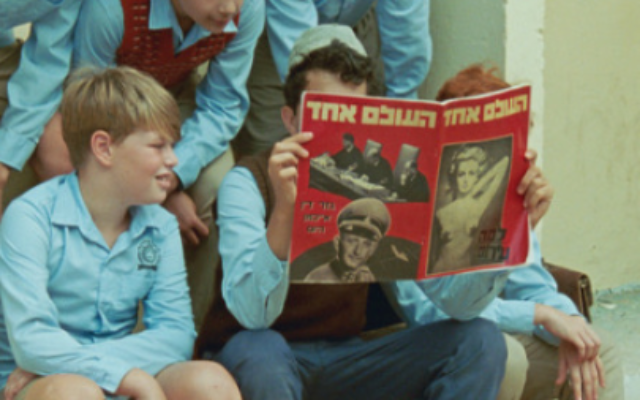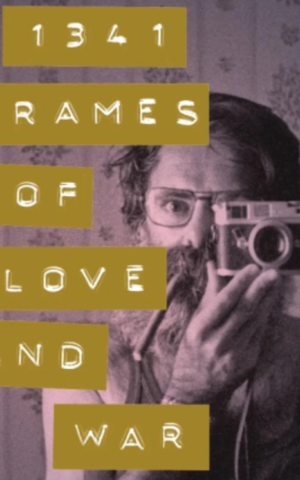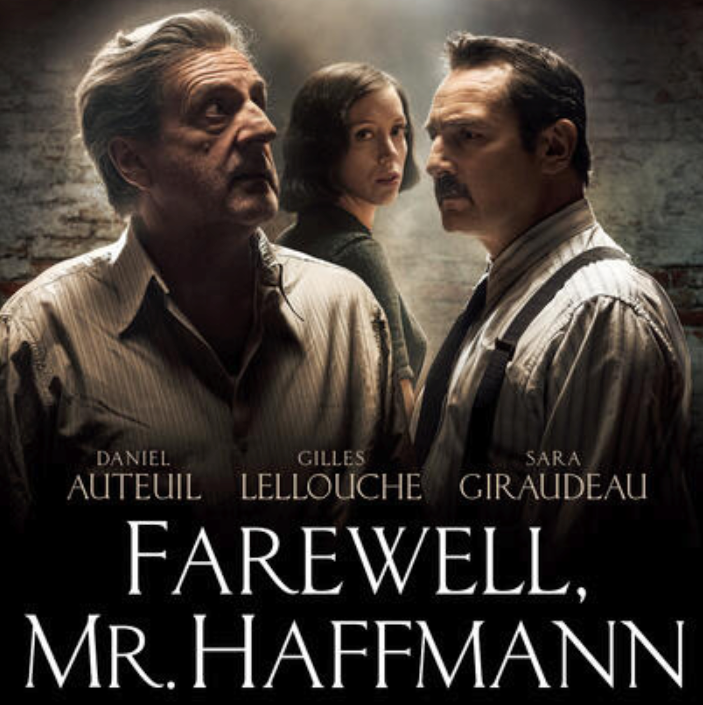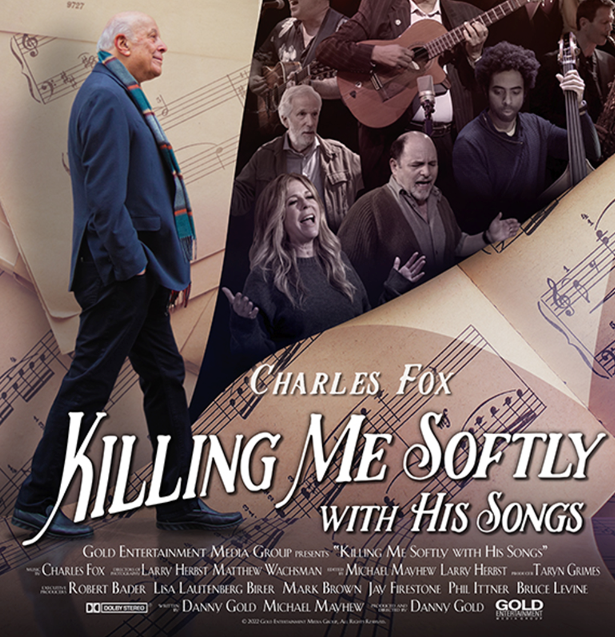Israel Wins Big with Critics at AJFF
Film produced by Israel wins all but one of the jury prizes, but strikes out with filmgoers.

A filmed drama told against the backdrop of Israel’s 1962 execution of Nazi war criminal Adolf Eichmann and a documentary about one of Israel’s most famous photojournalists have captured two of the top prizes at this year’s Atlanta Jewish Film Festival. Both were part of a nearly clean sweep of best film awards from Israel’s burgeoning film industry this year.
The winner of the best fictional narrative film went to Israel’s “June Zero,” a look at the impact of Adolf Eichmann’s execution in 1961 after his monumental trial in Jerusalem and his execution the following year.
“June Zero” is about the impact of the trial on three diverse characters, all immigrants to the young Jewish state. The film is the first foreign language production directed by Jake Paltrow, who also co-wrote the script. He grew up in a prominent Hollywood film family. His father, Bruce Paltrow, was an important producer and director before his death in 2002, and his mother is the actress Blythe Danner. Paltrow’s sister is the Academy Award winner and internet entrepreneur, Gwyneth Paltrow.

The jury prize for best documentary went to “1341 Frames of Love and War,” which is also an Israeli production by the veteran director Ran Tal. The film is based on the life work of Israeli photojournalist Micha Bar-Am who gave Tal full run of her vast archive that spans over half a century. The film, which is made up entirely of images culled from Bar-Am’s long career as a photographer of war and violence, has been described as “a complex love letter to the power, beauty, and horror of photographic imagery.”
Tal has been a frequent contributor to the AJFF. His film about former Israeli prime minister, “What If? Ehud Barak on War and Peace” was seen during last year’s festival and “The Museum,” a look behind the scenes at the Israel Museum in Jerusalem which was programmed in 2019.
When the AJT interviewed him about “The Museum” film, he commented that what drew him to the project was the Jewish search for identity. Once again, in 2023, that same question is at the heart of his “1341 Frames of Love and War.”
In balloting by the judges for the other major Jury prizes, it was almost a clean sweep for the Israelis. To almost no one’s surprise, “Cinema Sabaya,” which won Best Film and a number of other awards at the most recent Ophir Awards in Israel, was the film that best fostered “understanding among diverse religions, ethnicities and culture.” The documentary was, in large part, made up of the videos that a group of Israeli and Palestinian women created about their daily lives.

The Human Rights Award was presented to “Exodus ‘91,” directed by the American-born Israeli filmmaker, Micah Smith, who made Aliyah in 2004. It documented Operation Solomon, the dramatic airlift in 1991 of 15,000 Jews from Ethiopia’s Beta Israel community. This AJT writer was privileged to conduct a post-screening interview with Smith. He described the difficulties that still face those Ethiopian Jews who immigrated more than 30 years ago.
He was a guest of the festival, along with Shai Ferdo, who plays the role of an important Ethiopian government official, in the recreation of the negotiations to allow the Ethiopians to leave. Fredo was part of the original airlift of Ethiopians from refugee camps in Sudan in 1982. Like Smith, he described the hard road Ethiopians have faced in becoming a part of the modern Israel.
Immigrants to Israel were also the subject of the jury award for Best Short Film. It went to “Fledge,” a 15-minute, Israeli stop-motion animation production directed by Hani Dombe and Tom Kouris.

The only exceptions to the Israeli sweep was Ady Walter, a French filmmaker, who was recognized for the Emerging Filmmaker honor. His Yiddish language film “SHTTL” was a tense drama set in a Jewish village, or shtetl, in World War II Ukraine.
The audience awards, which were selected on the basis of voting by ticket holders, was a complete shut out for the Israelis. The audience choice for narrative film went to “Farewell Mr. Haffmann,” a French production set in Paris during the Nazi occupation of the city. The film was driven by an outstanding performance by the great French actor Daniel Auteuil.
The audience choice for best documentary “Killing Me Softly With His Songs,” produced in Los Angeles, got a strong boost from its subject, the Hollywood composer, Charles Fox. He charmed the closing night audience with an interview and a generous musical performance of some of his greatest hits.
Finally, the audience choice for best short was the southeastern premiere of German filmmaker Roland Puknat’s, “The Caretaker.” Based on a true story, it was about how a museum caretaker in Hamburg frustrated the Nazi plan to seize modern masterpieces they considered as degenerative art.
- Arts and Culture
- Local
- Bob Bahr
- dolf Eichmann
- Atlanta Jewish Film Festival
- June Zero
- Jake Paltrow
- Bruce Paltrow
- Academy Award
- Gwyneth Paltrow
- 1341 Frames of Love and War
- Ran Tal
- Micha Bar-Am
- What If? Ehud Barak on War and Peace
- srael Museum
- Cinema Sabaya
- Exodus 91
- Micah Smith
- Operation Solomon
- Beta Israel
- Shai Ferdo
- Hani Dombe
- Tom Kouris
- Ady Walter
- SHTTL
- World War II
- Ukraine
- Farewell Mr. Haffmann
- Daniel Auteuil
- Killing Me Softly With His Songs
- Charles Fox
- The Caretaker
- Roland Puknat



comments